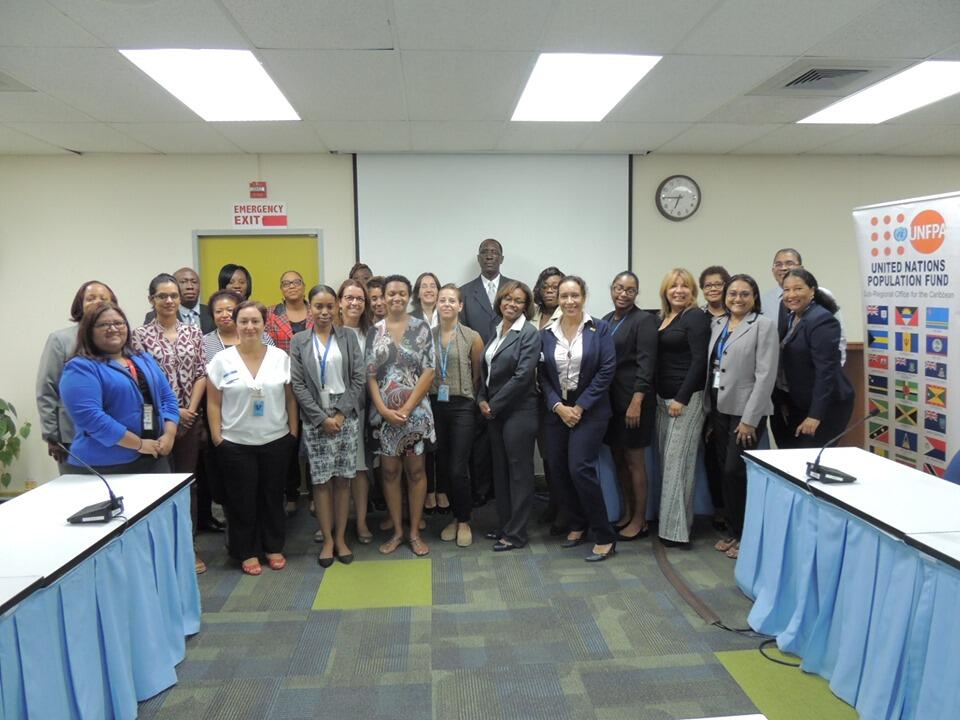The Government of the Republic of Trinidad and Tobago through the Office of Disaster Preparedness and Management (ODPM) and in collaboration with the United Nations Population Fund (UNFPA), have convened two (2) training sessions on:
- The Minimum Initial Service Package (MISP) for the delivery of Sexual and Reproductive Health (SRH) and Gender Based Violence (GBV) services in emergencies designed for Policy Makers and Programme Officers. These sessions will take place on the 13 & 14 May 2019 at the United Nations Economic Commission for Latin America and the Caribbean (ECLAC), at #1 Chancery Lane, Port of Spain, Trinidad.
- The Safe Identification and Referral Pathways to address Gender Based Violence in Emergencies designed for First Responders will be held on the 15-17 May 2019 with the following partners: Ministry of the Attorney General and Legal Affairs Conference Centre, Corporate Communications Department, Ministry of the Attorney General and Legal Affairs, Government Plaza, Corner London and Richmond Streets, Port of Spain.
The training sessions are being guided by the Programme of Action (PoA) of the 1994 International Conference on Population and Development (ICPD), which was held in Cairo, Egypt. At that conference, 179 governments adopted the PoA which recognized that reproductive health, women's empowerment and gender equality are the pathway to sustainable development.
The PoA drew attention to the needs of especially vulnerable populations, including displaced persons and refugees in humanitarian settings. Reproductive Health and issues related to Gender Based Violence are sensitive topics which emerge during humanitarian emergencies. The concept of a Minimum Initial Service Package (MISP) for the delivery of SRH and GBV services in humanitarian emergencies is a response to this reality. The MISP is a coordinated set of activities designed to prevent and manage the consequences of sexual violence; reduce transmission of human immunodeficiency virus (HIV); prevent newborn and maternal morbidity and mortality; and plan for comprehensive RH services.
The MISP training sessions will:
- Build the capacity of participants to understand the MISP concept and rationale for implementation in the early phase of emergency.
- Promote the unique value of the MISP to enhance coordination of SRH and GBV in any crisis situation.
- Support the inclusion of SRH and GBV concerns in national disaster plans.
Similarly, the training in the Safe Identification and Referral Pathways to address Gender Based Violence in Emergencies will support Government’s response to natural and man-made disasters. The sessions will deal with the challenges related to the current influx of Venezuelan migrants and asylum seekers in Trinidad & Tobago. As the Government of Trinidad and Tobago seeks to achieve Vision 2030 and meet the development targets of the Sustainable Development Agenda, UNFPA and its UN sister agencies will continue to support national capacity initiatives aimed at building greater resilience and ensuring that No One Is Left Behind.”


